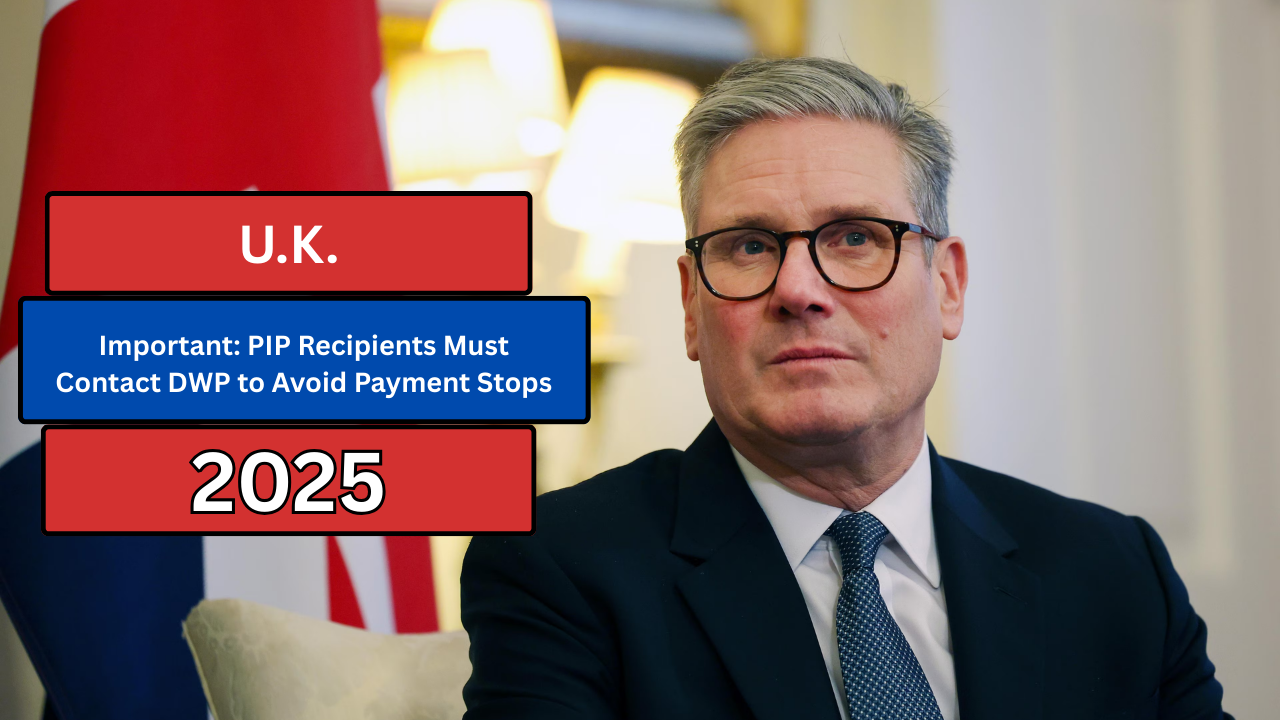Personal Independence Payments (PIP) offer crucial financial support to people with long-term health conditions or disabilities.
However, to maintain this support, claimants must ensure they stay up to date with changes in their circumstances.
The Department for Work and Pensions (DWP) has recently highlighted several situations that could affect PIP eligibility, and if you fail to inform them about these changes, your PIP payments could stop or be reduced.
The DWP’s latest guidelines outline the importance of reporting key life changes promptly to avoid losing access to this essential financial assistance.
Let’s break down what changes you need to report and what you need to know about staying on top of your PIP claims.
Key Life Changes You Need to Report
If you’re a PIP claimant, it’s vital to understand that not every change in your life will affect your entitlement to PIP. However, there are specific situations where failing to inform the DWP could lead to complications with your payments. Some changes that won’t affect your PIP include:
- Changing your name: Whether you’re married, divorced, or simply want to change your name, this will not affect your eligibility for PIP.
- Switching doctors or healthcare professionals: If you change your healthcare provider, whether it’s a general practitioner (GP) or specialist, this won’t impact your claim.
- Moving house: Relocating to a new address is a common life event, but as long as your care needs haven’t changed, your PIP should remain unaffected.
However, some changes may require you to contact the DWP immediately to avoid issues with your PIP claim.
When Your PIP Might Be Affected?

Several changes could have a direct impact on your PIP payments. In these instances, it’s essential that you notify the DWP as soon as possible:
1. Leaving the UK for More Than Four Weeks
If you’re planning to leave the UK for more than four weeks, this could affect your entitlement to PIP. According to the latest PIP guidelines, the DWP requires information on:
- The date you plan to leave the country
- How long will you be abroad
- Which country are you moving to
- The reason for your stay abroad
The reason for reporting these details is that PIP is intended to support those living in the UK. If you’re outside the UK for an extended period, you may not qualify for payments.
However, there are some exceptions, such as if you are going abroad for medical treatment. It’s important to be upfront about your travel plans to ensure there are no disruptions in your payments.
2. Changes in Your Health or Care Needs
Your health condition and the level of support you require can directly influence the amount of PIP you receive. If there are any changes in your daily living needs or mobility requirements, it’s essential to inform the DWP. These could include:
- Increased or decreased need for assistance with daily tasks: If your condition worsens, requiring more help, or improves, reducing your need for support, your PIP could be adjusted accordingly.
- Changes in the duration of your condition: If a healthcare professional informs you that your condition is expected to last longer or shorter than initially reported, you must update the DWP.
3. Being Admitted to a Care Facility
If you are admitted to a hospital, hospice, nursing home, or any form of residential care, you must inform the DWP.
Depending on your care requirements, this could affect your eligibility for PIP. If your stay in a facility is temporary, your payments may be suspended or adjusted, and if it’s permanent, your eligibility might be reassessed.
Similarly, if you move into a residential school, college, or foster care, you need to notify the DWP.
4. Immigration or Citizenship Changes
If your immigration status changes, and you are no longer a British or Irish citizen, your entitlement to PIP could be impacted. This could happen if you become a citizen of another country or if your residency status changes.
5. Changes in Pension or Benefit Status
If you begin or stop receiving pensions or benefits from an EU country, Switzerland, Norway, Iceland, or Liechtenstein, you must report this change to the DWP.
The same applies if your spouse, civil partner, or a dependent parent starts or stops receiving benefits from these countries.
6. Being Imprisoned or Detained
If you are imprisoned or detained, you need to inform the DWP immediately. While in detention, you may not be eligible for PIP payments, and failing to report this could result in overpayments or disruptions to your benefits.
What Happens After You Report a Change?
Once you’ve informed the DWP of any of these changes, your PIP award may be reassessed. Depending on the nature of the change, your payments could:
- Go up: If your needs have increased and you require more help, you may qualify for a higher rate of PIP.
- Go down: If your needs have decreased, your entitlement to PIP may be reduced.
- Stay the same: If the change does not affect your eligibility or care needs, your PIP may remain unaffected.
- Stop: In some cases, if you no longer meet the requirements for PIP, your payments could stop entirely.
The DWP will always inform you of any decisions or adjustments made to your PIP claim, and you will have the opportunity to challenge any decision you disagree with.
It’s important to maintain open communication with the DWP and keep them updated on any life changes that could affect your claim.
Why Reporting Changes is Crucial?
Failure to inform the DWP about key changes in your circumstances can lead to delays, overpayments, or even suspension of your PIP payments.
Overpayments may need to be paid back, and in some cases, you could face financial hardship if your payments are stopped unexpectedly.
Ensuring that the DWP is informed of any life changes as soon as they occur will help you avoid these issues and maintain your access to vital support.
In conclusion, while certain changes, like moving house or switching doctors, will not impact your PIP payments, others, like moving abroad for an extended period or changes in your health condition, may require you to contact the DWP immediately.
To avoid any disruptions to your financial support, make sure you stay on top of these requirements and keep the DWP updated.



